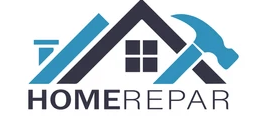Homeowners typically dismiss small bathroom leaks as minor annoyances. However, even the slightest leak has the potential to develop into serious structural and financial problems. Water leaks into inaccessible areas can erode the foundation, encourage mold growth, and deteriorate vital building elements. If you do not take immediate action and apply the best waterproofing solutions, these small leaks could jeopardize your home and shorten its lifespan.
How Small Bathroom Leaks Build Up Over Time
A little leak in a bathroom tile or a slight dribble from a tap is not an emergency. Water seepage, however, has the potential to spread into gaps, cracks, and permeable surfaces, gradually eroding the structure. If minor leaks are not fixed, they result in:
- Structural Damage: Water intrusion can cause floors, walls, and ceilings to crumble, necessitating expensive repairs.
- Mildew and Mold Growth: Wet areas are breeding grounds for mold, which can cause allergies and other health issues.
- Increased Utility Bills: Over time, a small leak will waste gallons of water, resulting in astronomically high utility bills.
- Paint and Fixture Damage: Prolonged wetness can cause decaying wood components, rusty metal fixtures, and peeling paint.
Common Causes of Leaks in Bathrooms
Leaking shower heads and faucets with worn-out washers, loose or cracked tiles that allow water to seep through, broken grout and sealant, concealed pipe leaks in walls or beneath floors, and malfunctioning toilet seals are common causes of bathroom leaks. These ostensibly minor problems may develop into more serious structural challenges if unresolved.
Implementing trustworthy waterproofing solutions is essential to preventing bathroom leaks from becoming expensive catastrophes. While high-quality grout and sealants stop water seepage, waterproof membranes underneath tiles and floors provide a moisture-resistant barrier. Professional waterproofing contractors guarantee leak-proof plumbing installations and specialized waterproof coatings shield bathroom walls from moisture damage. Water buildup and possible leaks are avoided by ensuring bathrooms have adequate drainage.
Although some homeowners might try do-it-yourself fixes, proper waterproofing calls for knowledge, accuracy, and materials of the highest caliber. Expert waterproofing contractors conduct in-depth inspections to find leaks, implement durable fixes, and guarantee that moisture won’t weaken the building’s structure. They employ high-quality materials for longevity, sophisticated instruments to locate concealed leaks, and affordable waterproofing techniques to save costly repairs and reoccurring leaks.
Homeowners should take extra precautions in addition to waterproofing to reduce the chance of bathroom leaks. Minor plumbing problems can be found early on with routine maintenance and inspections. A robust waterproof barrier can be maintained by replacing worn-out sealants, and leaks can be detected early thanks to sophisticated water sensors. A bathroom with adequate ventilation has less moisture accumulation, which inhibits the formation of mold and water damage.
Ignoring minor leaks can result in significant water damage, compromising structural stability and raising the possibility of mold growth. Continuous exposure to moisture over time can weaken a home’s foundation, flooring, and electrical systems. In addition to protecting their property, homeowners who invest in waterproofing solutions early on also avoid future expensive repairs.
There is more to a thorough bathroom waterproofing strategy than sealing apparent leaks. Proactive maintenance, premium waterproofing supplies, and professional evaluation by contractors are all necessary. With the correct approach, homeowners may prevent long-term water damage and maintain dry, usable bathrooms.

